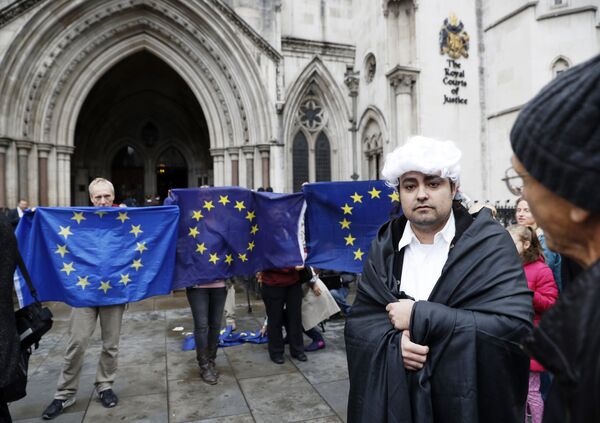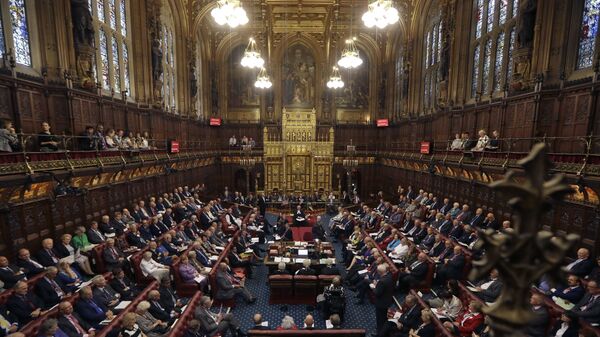The Lords begin their debate on the European Union (Notification of Withdrawal) Bill, which is going through parliament, enabling UK Prime Minister to formally invoke Article 50 of the Treaty of Lisbon, which formally begins the process of Britain leaving the EU and negotiating a new relationship with the bloc.
Some of the UK's most senior EU law experts, Sir David Edward, former judge of the European Court of Justice, Sir Francis Jacobs, that Court's former Advocate General, and distinguished EU lawyer Sir Jeremy Lever, have provided the Lords with a written legal opinion on the constitutional role of Parliament in future decision-making on Brexit and the linked question of whether an Article 50 notice can be withdrawn after it has been given.
The authoritative opinion was commissioned by John Halford of legal firm Bindmans LLP for the People's Challenge, a campaigning group who supported the successful Supreme Court challenge to the UK Government's proposed use of the Royal Prerogative to commence the Brexit process.
#EU Notification of Withdrawal #Bill does not disable Parliament’s ‘constitutional handbrake’ on #Brexit: https://t.co/rXruTlfCCL
— Bindmans LLP (@BindmansLLP) 17 February 2017
It concludes that the 2017 Bill will allow the Prime Minister to notify the UK's intention to leave the EU and to start the Article 50 process, but that actual withdrawal from the EU will need to be authorized by Parliament in a future Act, once the outcome of the negotiations, and the impact on individual and business rights, is known.
"We hope this Opinion will help peers understand that the Bill does not have that effect, Parliament will still be able to deploy its constitutional handbrake at any time during the next two years, and the EU will be bound to respect that. This leaves open the option of withdrawing our Article 50 notice if there is no acceptable deal agreed and Parliament decides that a hard Brexit is not in the national interest," Grahame Pigney of the People's Challenge group told Sputnik.
#FutureEU: Guy Verhofstadt: "Europe is undergoing an existential crisis" ↓ pic.twitter.com/wYDK6J4nFC
— European Parliament (@Europarl_EN) 17 February 2017
In any case, says Pigney, the EU is going through such change at the moment — with the migration crisis, a rise in nationalism across the continent and the troubles in the Eurozone — that the EU may have to completely rethink its raison d'être and Britain may yet remain part of an evolved EU.
"I think it's quite likely that the evolution of the EU will change things between now and two years down the road from when the Article 50 negotiations is triggered. That's one of the reasons why parliament must keep all the options open about what it decides to do. You can't tell from here what the world is going to be like in two years' time," Pigney said.

Eurozone Convergence?
"I think there is every possibility that there are going to be substantial changes in the eurozone and that will inevitably end up in a lot closer fiscal relationships between those [eurozone member] countries. Whether the eurozone continues with the same number of members that is has at the moment — if it goes through that transition — we just don't know," he told Sputnik.
Meanwhile, with upcoming elections in the Netherlands, France and Germany dominated by nationalist and anti-EU sentiment, Pigney says things may well have change by the time Britain has finished its negotiations over Brexit.
"There are a lot of pressures. The fact that major EU elections are coming up is all the more reason for being very cautious about setting out a plan of action now for something that won't happen for 18 to 24 months," he told Sputnik.



